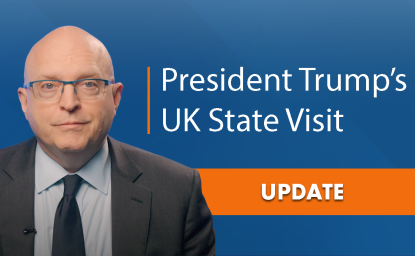WASHINGTON, D.C.— A new Ipsos-Reid poll conducted on behalf of the Woodrow Wilson International Center for Scholars, for the "NAFTA at 10: Progress, Potential, and Precedents" Conference being held here on December 9 and 10, 2002, released tonight, shows that at the 10th anniversary of the signing of the North American Free Trade Agreement, half (48%) of Americans say that their country has been a winner as a result of the agreement. This compares to the views of Canadians (38%) and Mexicans (30%) on how their own country has fared with regard to NAFTA .
Mexicans (52%) are the most likely to indicate that their country is a loser in NAFTA, while 47% of Canadians also hold this view regarding Canada's role in NAFTA. In comparison, only 37% of Americans believe this to be the case for the U.S. In general, younger people in Canada (44%) and the U.S. (64%) are more likely than their middle aged (Canada 36%; U.S. 41%) or older (Canada 34%; U.S. 39%) counterparts to believe their country has been a winner in NAFTA.
These are the findings of Ipsos-Reid polls conducted in Canada, the United States and Mexico during November 2002. The polls are based on a randomly selected sample of 1,007 adult Canadians, 1,000 adult Americans and 503 adult Mexicans. With samples of this size, the Canadian and American results are considered accurate to within ± 3.1 percentage points, 19 times out of 20, of what they would have been had the entire adult populations of Canada and the United States been polled. The Mexican results are considered accurate to within +4.5 percentage points, 19 times out of 20, of what they would have been had the entire adult populations of Mexico been polled. The margin of error will be larger within regions and for other sub-groupings of the survey population.
Canadians appear to be the most polarized as to the effects of NAFTA on their country. More Canadians (38%) believe that NAFTA has hurt Canada, compared to one-third (34%) who say that the agreement has benefited Canada, while 17% believe that it hasn't had any impact one way or the other on the country. In comparison, one-third (34%) of Americans believe the agreement has benefited the U.S., while 23% say that it has hurt their country. One-third (32%) say that it hasn't had any impact on the United States. Mexicans are the most evenly split on the effects of NAFTA on their country, with 29% who say that the agreement has benefited Mexico, 33% who say it has hurt the country, and an equal number (33%) who say it has not had any impact on Mexico.
- Younger Americans (43%) are more likely to say that NAFTA has benefited their country, while middle aged (37%) and older (36%) Americans are more likely to say that the agreement has hurt the United States.
- Meanwhile, middle aged (33%) and younger (28%) Mexicans are more likely to believe that the agreement has benefited Mexico, while older (39%) Mexicans are more likely to say that NAFTA has hurt Mexico.
- In Canada, middle aged (46%) Canadians are more likely than either older (37%) or younger (37%) Canadians to say that NAFTA has hurt Canada, while there is no statistical difference between age groups as to the view that NAFTA has benefited Canada.
- For comparison, when this question was previously asked of Canadians in October 1999 and December 1997, four in ten (1999: 41%; 1997: 40%) believed that Canada benefited from NAFTA, while three in ten (1999: 30%; 1997: 27%) said that NAFTA had hurt Canada.
However, Canadians (44%) are the most likely to say that we should make trade even closer between these countries and integrate the three economies further (U.S. 34%; Mexico 33%). Meanwhile, Americans (39%) are the most likely to say that we should keep trade between these countries and their economies the way they are today for the foreseeable future (Canada 31%; Mexico 25%). Mexicans (33%) are the most likely to say we should reduce trade and integration of the economies of these three countries (Canada 19%; U.S. 19%).
- Younger (44%) Americans are more likely than older (36%) Americans to say things should remain the way things are for the foreseeable future, while middle aged (23%) Americans are more likely than their younger (14%) counterparts to indicate that trade and integration of the economies of the three NAFTA countries should be reduced. This is also the view of Americans in middle (24%) and upper (21%) income households compared to the views of those in lower income households (13%).
- In Canada, younger (38%) Canadians, more than older (29%) or middle aged (28%) Canadians say that trade and economic integration should remain the way it is for the foreseeable future.
-30-
For more information on Ipsos-Reid and the poll, please contact:
Thom Riehle
President and COO
Ipsos-Reid U.S. Public Affairs
Washington, D.C.
(202) 463-7300
John Wright
Senior Vice-President
Ipsos-Reid Public Affairs
Toronto, Ontario, Canada
(416) 324-2900
For full tabular results of the poll, please visit www.ipsos-reid.com.
The Woodrow Wilson International Center for Scholars is the living, national memorial to President Wilson established by Congress in 1968 and headquartered in Washington, D.C. The Center establishes and maintains a neutral forum for free, open, and informed dialogue. It is a nonpartisan institution, supported by public and private funds and engaged in the study of national and world affairs.
Lee H. Hamilton, director of the Center, served as a member of Congress for thirty-four years.
###



